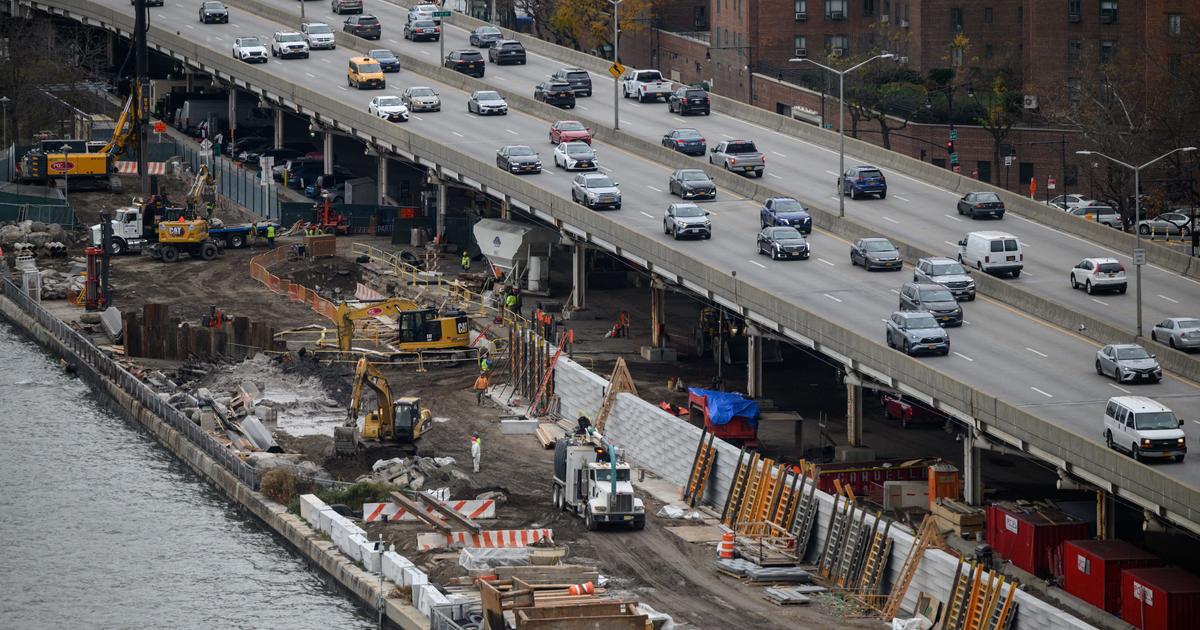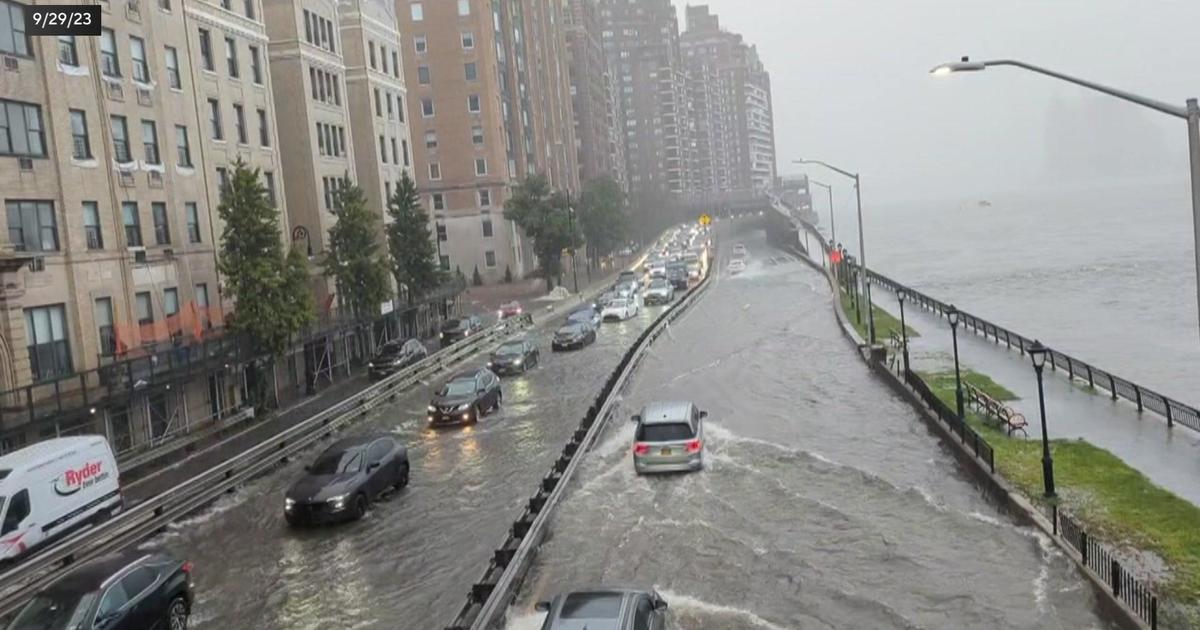WCBS 880 Conversation: Alex Silverman Sits Down With 'Gridlock' Sam Schwartz
NEW YORK (CBSNewYork) -- In this installment of WCBS Conversation, WCBS 880 reporter Alex Silverman sat down to talk New York City transportation with "Gridlock" Sam Schwartz.
It's something that affects just about every single one of us: how we get around.
Whether you walk, bike, take the train or have a car, Gridlock Sam has probably thought a lot more about your commute over the years than you have.
Schwartz served as New York City's traffic commissioner from 1982 to 1986 before going on to serve as the city's Department of Transportation chief engineer and first deputy commissioner.
In 1995, Schwartz launched Sam Schwartz Engineering where his staff of two has now grown to over 100 professionals producing civil engineering, planning, and urban design. Schwartz is also the author of a new book, "Street Smart: The Rise of Cities and the Fall of Cars."
He grew up on the streets of Brooklyn and has been fascinated ever since.
"Well, the streets were the playgrounds. We didn't have very many parks… and the streets were everything to us. It's where all the kids met. You didn't have any prearranged settings, no parents shuttling you back and forth. We created our own games. It had that kind of ingenuity that you needed as a kid without all the structured play, but also you had far fewer cars," Schwartz said.
When he began working for New York City transportation, he said getting cars moving more swiftly and smoothly was always the main emphasis. But he says more lanes and highways are not always the answer.
Schwartz said focus on the car began to shift in the 1980s when the Transportation Department began experimenting with a number of pro-transit alternatives.
Any conversation about Uber in New York has recently been loaded with political agenda, but does Uber's growth affect congestion in the city?
"I think these are really good technologies, however a lot of caution-- it does affect other industries. We have just as many taxis out there as we had before, when you add the Uber vehicles... they're waiting, often in no parking zones or circulating. The result is more of these on-demand vehicles, more traffic congestion. Traffic has gotten worse. I don't believe the studies that say there is no correlation between on demand vehicles and traffic," he said.
Schwartz said studies on who is actually using Uber might be helpful to further evaluate its effect on city congestion.
He also discussed the city's current congestion pricing plan for commuters coming in and out of the city.
"I've spent a lot of time with the opponents to the Bloomberg plan and listened to them, they felt like they were already paying too much in tolls. In the 'Move New York' plan, we lower all the tolls outside central Manhattan businesses... the truckers are paying $86 going up to $90 to $100 by 2020, they have no subway alternative. So we slash trucking costs in Brooklyn, Queens, Long Island, Bronx by some 30 to 40 percent. It's just extraordinary," Schwartz said.
The plan would involve cutting tolls for bridges in several boroughs, while returning tolls to the East River bridges, where there are alternative transit options for commuters.
You can check out Alex Silverman's full interview with Gridlock Sam in the video above.



